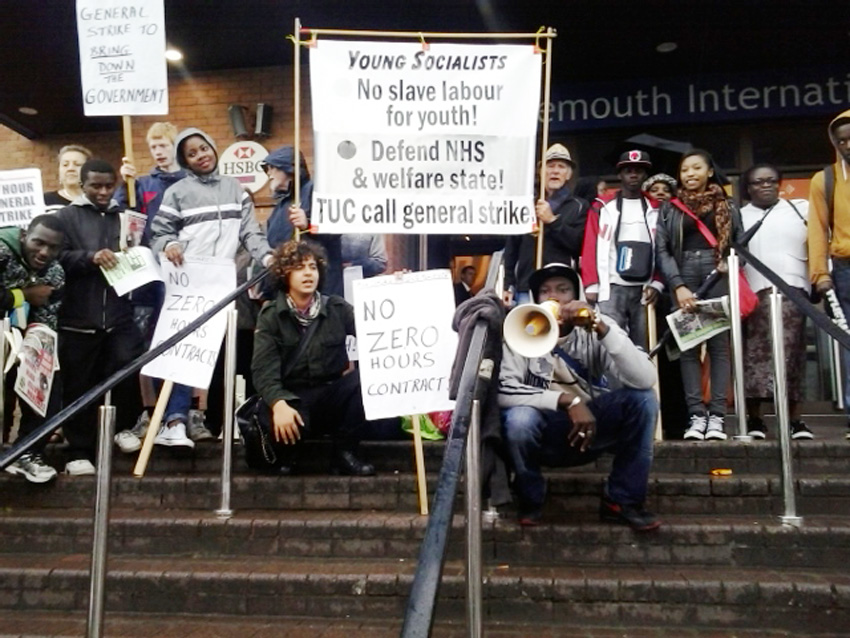‘FOOD BANKS, zero hours and pay cuts for the many – tax cuts and pay growth for the few,’ that’s what ‘recovery’ means to most people in Tory-LibDem Britain, TUC General Secretary Frances O’Grady commented in her New Year Message.
A TUC-commissioned YouGov poll published yesterday shows that just two per cent of voters think they have benefited from the so-called ‘economic recovery’.
A big majority expect the living standards crisis to continue throughout the year.
Only one in eight (12 per cent) of those in work expect their pay to keep up with the cost of living, which is the same proportion as those who report that their pay kept up with the cost of living during 2013.
Forecasts published alongside Chancellor Osborne’s Autumn Statement last month show that he intends to keep cutting spending beyond the election planned for May 2015, with a 2018/19 target of reducing public spending as a proportion of GDP to the same level it was in 1948!
But voters do not back his plans for permanent public sector cuts.
More than half (56 per cent) agree with the statement: ‘As the economy grows I want to see most or all of the services that have been cut restored.’
The Institute for Fiscal Studies (IFS) has said that 60 per cent of cuts in public services have yet to happen, but the TUC-YouGov poll shows that voters do not appreciate the scale of the intended cuts to come.
YouGov asked people to say what proportion of cuts have already been implemented and three in five voters (59 per cent) underestimated the scale of the cuts to come.
Only one in five voters (21 per cent) ‘expect the gains of an economic recovery to be fairly shared across the country and society’, while more than twice as many (58 per cent) ‘expect the gains of an economic recovery to mainly go to the types of people and parts of the country who are already doing well.’
In her New Year Message, O’Grady said: ‘Our new poll is bad news for the government.
‘Voters do not expect to benefit from the recovery next year, do not expect their wages to keep up with living costs and do not trust the government to spread the benefits of recovery fairly.
‘Above all they do not share the Chancellor’s ambition to permanently shrink the state. By more than two to one they want to see services restored when the economy grows, not permanently cut.’
